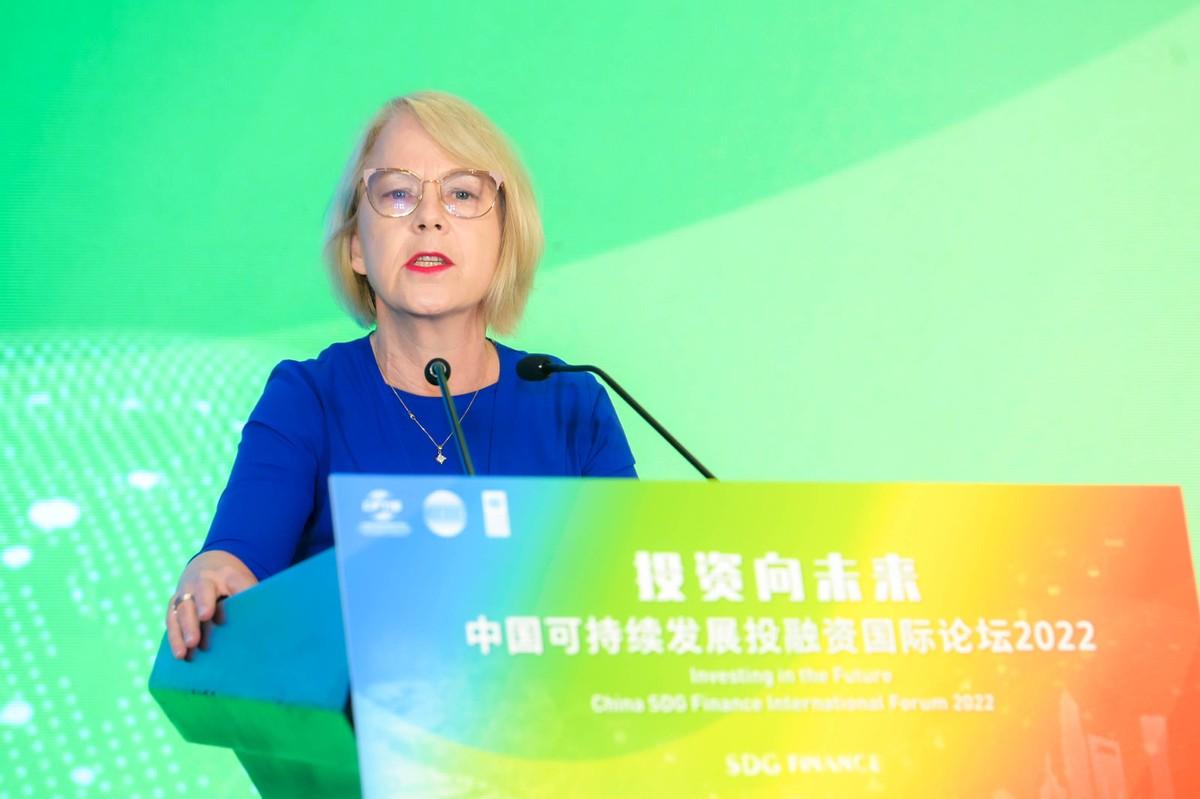
Welcome remarks at the China SDG Finance International Forum 2022
Ms. Beate Trankmann
Welcome to the China SDG Finance International Forum. On behalf of UNDP, I would like to extend my most sincere thanks to China International Center for Economic and Technical Exchanges as the forum co-host, all the supporting partners, and to all the participants joining us in person and online.
The world is at a critical juncture. COVID-19 has had severe socio-economic impacts that continue to be felt globally. In 2021, as many as 163 million people were pushed back into poverty by the pandemic, reversing roughly 6 years of progress.1 This year, the situation has been further exacerbated by global conflicts, food and energy shortages, and extreme weather events resulting from climate change, all of which have had devastating effects on livelihoods, and economic and social stability. Both humanity and the natural world are being pushed to the brink.
When the 2030 Agenda for Sustainable Development was adopted in 2015, it was envisaged as a joint plan and roadmap to secure the future of both people and planet. However, with only 8 years left, the world is far off track from realizing this vision. One of the key areas in which we are falling woefully short is financing.
COVID-19 has increased the annual financial gap to achieve the Sustainable Development Goals in developing countries to 4.2 trillion USD 2 - a 40% jump. While this sounds like a lot of money, in relative terms it actually isn’t. Reallocating just 1.1 percent3 of global financial assets would be able to cover it. And doing so makes economic sense. Achieving the SDGs by 2030 would open 12 trillion USD of global business opportunities.4 And by prioritizing nature, businesses could unlock 10 trillion dollars in opportunities globally and create 395 million jobs by 2030.5 These are thus valuable investments in our collective future, not costs.
Recognizing this, China has already taken important steps to advance SDG financing. For example, China has rapidly risen to be among the top issuers in green bonds globally, recording the fastest growth rate among major countries last year.6 Chinese regulators have supported this trend through pilots, guidelines, and frameworks that direct financial markets towards sustainability aligned financial tools. The challenge now is to build on this momentum and accelerate system-wide reforms to generate the funding necessary to meet both the 2030/2060 carbon targets, and the SDGs.
Moving forward, together with government institutions, academia, and the private sector, UNDP stands ready to continue supporting these efforts. In his remarks to follow, my colleague, Marcos Neto, will expand on the specific pathways to ensure the highest impact on the SDGs and national priorities. These include:
1.unlocking greater private finance for the SDGs,
2.developing SDG-aligned financial instruments,
3.and increasing impact measurement and reporting.
In addition, expanding on our decades of cooperation with CICETE and governments and communities in provinces and cities, we will also be working with local authorities to explore how to unlock financing from public budgets and target more resources towards the SDGs and the green economy transformation.
In closing let me express my thanks to CICETE for co-hosting this event with us and to everyone who has joined us today!
This forum as well as the partnership commitment that we are launching during the course of the morning serve to strengthen the collaborative efforts between public and private sector stakeholders and further unite us behind the urgent need to accelerate progress on the SDGs and boost dedicated financing in their support.
Indeed, whether we can fulfil the promise of the 2030 Agenda depends on all of society.
Only by taking decisive actions together can we succeed in ensuring a sustainable future for generations to come.

 Back
to top
Back
to top